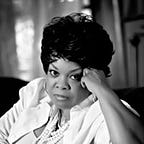Is It True That Hair Dye and Relaxer Cause Cancer?
Here’s how to interpret and navigate all the negative health news
Published in
5 min readJan 9, 2020
![]() Every day we are reminded of the sheer volume of things that, according to studies, negatively impact women of color. You name it, it hurts us. From alcohol and traffic accidents to toxic masculinity and certain nail polishes, between the reporting of personal anecdotes…
Every day we are reminded of the sheer volume of things that, according to studies, negatively impact women of color. You name it, it hurts us. From alcohol and traffic accidents to toxic masculinity and certain nail polishes, between the reporting of personal anecdotes…
